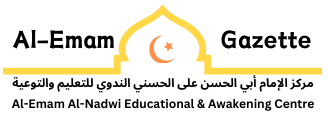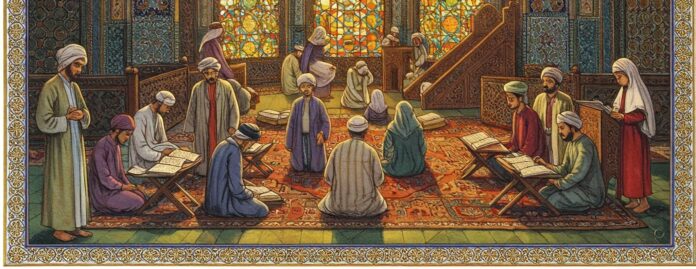Focusing on knowledge acquisition and diligent work does not diminish the value of the worship. Rather, it broadens the concept of worship to include every beneficial action a person performs for themselves and their community. Mastering one’s work and contributing to societal development are acts of worship no less important than voluntary prayer and fasting. Indeed, knowledge and work may surpass voluntary acts of worship in merit because their benefits extend to others, while the benefits of voluntary worship are limited to the individual.
Pursuit of Knowledge and work are the foundations of progress and advancement, and the means to achieve justice and prosperity in society. By encouraging the acquisition of beneficial knowledge and diligent work, Islam considers these integral parts of worship that bring one closer to God. The balance between knowledge, work, and ritualistic worship is the path to happiness in both worlds and the way to build a strong and cohesive Islamic society.
Islam balances life’s aspects, integrating spirit, matter, worship, work, and knowledge. This raises a key question: are knowledge and work forms of worship, or separate paths, possibly excelling traditional devotional acts?
A study of the Quran and the Prophetic traditions highlights the elevated position of knowledge and work, underscoring their vital role in societal development. As stated in Surah Al-Mujadila, verse 11, ‘Allah will elevate those of you who are faithful, and ˹raise˺ those gifted with knowledge in rank. And Allah is All-Aware of what you do.’ This verse unequivocally shows God’s exaltation of the knowledgeable, granting them high status in both this life and the hereafter.
In Surah Az-Zumar (9), God asks, ‘Say, ‘O Prophet,’ “Are those who know equal to those who do not know?” None will be mindful ‘of this’ except people of reason.’ This question forcefully highlights the inherent inequality between the knowledgeable and the ignorant, establishing knowledge as the foundation of distinction and excellence.
The Prophetic Sunnah is rich with hadiths highlighting the excellence of knowledge and work. Abu Darda’ narrated that the Messenger of God (peace be upon him) said: ‘Whoever follows a path seeking knowledge, God facilitates for him a path to Paradise. Angels spread their wings in approval of his actions. All that exists in the heavens and on earth, even the fish in the sea, seek forgiveness for the scholar. The scholar’s superiority over the devout worshipper is like the moon’s over the stars. Scholars are the inheritors of the prophets, who left behind not wealth, but knowledge; whoever acquires it gains a magnificent portion.’ (Reported by Abu Dawood and At-Tirmidhi).
This esteemed Prophetic tradition powerfully demonstrates the preeminence of knowledge and its scholars, underscoring that knowledge is the prophets’ enduring legacy, passed down through those who pursue it.
Another hadith from the Prophet (peace be upon him) states: ‘If the Hour of Resurrection is upon you, and one of you holds a seedling, capable of planting it before it occurs, then let him do so.’ (Reported by Ahmad and Al-Bukhari in Al-Adab Al-Mufrad). This hadith emphasizes the importance of diligent work, even in the face of imminent change, revealing work as a fundamental aspect of faith. It’s not about achieving a practical result at that moment, but about the principle of constant effort. It encourages cultivation and planting, urging believers to be productive and active, not idle or lazy. This includes various forms of work: farming, planting, craftsmanship like carpentry and blacksmithing, writing, and more. A believer should always be engaged in productive activity.
Beyond their role in material prosperity, knowledge and work are integral to embodying worship in its fullest sense. Knowledge facilitates the comprehension of God’s religion, and work enables its practical application in daily life. The proficient scholar, the caring doctor, the capable engineer, and the hardworking farmer—all perform acts of worship through their respective contributions.
While ritualistic worship, such as voluntary prayers, fasting, and remembrance, holds significant value in Islam, it does not represent the full scope of religious practice. Islam advocates for a balanced approach, integrating worship with work and harmonizing the spiritual and material dimensions of life. A Muslim’s devotion should extend to all facets of their existence, encompassing prayer, work, and the pursuit of knowledge.
Prioritizing pursuit of knowledge and work does not diminish the importance of voluntary worship. Instead, it expands the understanding of worship to encompass all beneficial actions individuals undertake for themselves and their communities. Mastering one’s profession and contributing to societal advancement are acts of devotion to God, equally significant to voluntary prayers and fasting.
The societal progress and the establishment of justice and prosperity are built upon the pillars of knowledge and work. Islam advocates for the acquisition of practical knowledge, dedicated labor, and meaningful production, viewing these as intrinsic forms of worship that strengthen one’s connection with God.
It is crucial to affirm that knowledge and work are inseparable from Islamic practice, forming a critical foundation for societal progress. Muslims should actively seek beneficial knowledge, dedicate themselves to diligent work and productive contributions, and integrate the worship of God into every aspect of their existence.
A harmonious balance between pursuit of knowledge, productive work, and devotion to God is the pathway to both worldly and eternal happiness, and the cornerstone of a strong Islamic community. Without question, integrating the pursuit of knowledge with voluntary acts of worship is the most virtuous approach. Imam Al-Shafi’i (may God have mercy on him) modelled this by dividing his nights into three segments: one for writing, one for prayer, and one for rest.
Thank you,
Ahmad Suhaib Nadvi
Al-Emam Gazette
Email: info@al-emam.org
Al-Emam Al-Nadwi Education & Awakening Center
New Delhi, India



